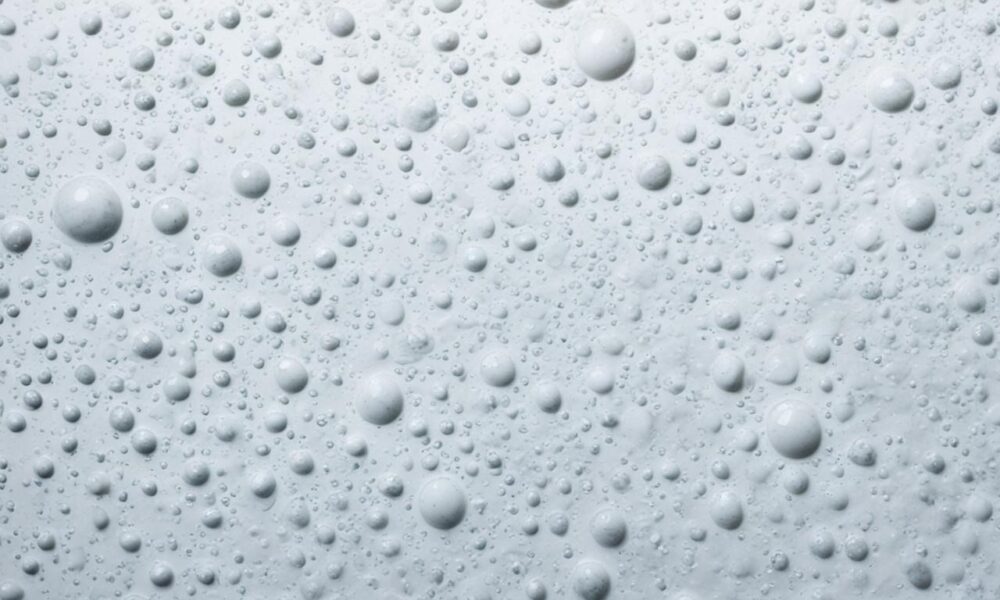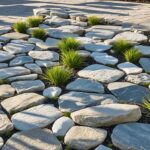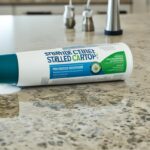Natural Stone Maintenance: Essential Cleaning Tips
Natural stone surfaces are both elegant and durable. They’re popular for countertops, floors, and walls. To keep them looking great, it’s important to care for them properly. Using pH-neutral cleaners made for natural stone is a good start1. These cleaners keep the stone and sealers safe. It’s also key to seal these surfaces regularly to avoid stains and extend their life1.
Never use cleaners with acid or bleach. They can harm sensitive stones like marble and onyx1. If a spill happens, clean it up right away to prevent stains. Also, getting a stone professional for periodic care keeps your countertops looking their best1.
Key Takeaways
- Use pH-neutral cleaners specifically designed for natural stone surfaces.
- Regularly seal your stone surfaces to prevent staining and prolong their lifespan1.
- Avoid acidic or bleach-containing products to prevent etching and damage1.
- Treat spills immediately to prevent stains1.
- Schedule periodic cleaning, polishing, and sealing by professional stone restoration technicians1.
Understanding Your Natural Stone
Natural stone is a popular choice in Houston for both homes and businesses. It showcases a love for timeless beauty and lasting quality2. To care for these materials right, it’s essential to know the different types of natural stone and their unique qualities.
Types of Natural Stone
There are two main types of natural stone, based on their make-up: calcareous and siliceous. Calcareous stones, like marble and limestone, are harmed by acidic cleaners3. On the other hand, siliceous stones like granite resist acids better and are more durable3.
Calcareous vs. Siliceous Stones
Calcareous stones are made mostly of calcium carbonate. They react badly to acidic things3. You need special pH-neutral cleaners for them. Siliceous stones, however, are mainly silica-based and less damaged by acids. This makes them easier to take care of with regular cleaning methods3.
Geological Classifications
Knowing about geological stone categories is key. There are three types: sedimentary, metamorphic, and igneous, based on how they’re formed. Sedimentary stones like limestone form from deposits, showing layers. Metamorphic stones such as marble change under heat, making unique patterns. Igneous stones like granite come from cooled lava, making them strong and often dotted.
Different stones need different care due to their traits and geological types3. Sealing is common for many stones, needed about every one to two years depending on the stone2. Checking and caring for them regularly keeps them beautiful and lasting3.
Routine Care for Stone Surfaces
Maintaining natural stone countertops is all about regular daily cleaning. This keeps dirt and grit away, preventing damage. Use the right products and methods to keep their beauty and longevity.
Daily Cleaning
Daily cleaning is key to keeping natural stone looking new. Use a pH-neutral cleaner, stone soap, or a gentle detergent with warm water. It’s important to avoid acidic or rough cleaners that can hurt the stone. Dry and buff the surface after cleaning to keep it shiny.
Products to Avoid
It’s vital to stay away from harsh chemicals and abrasive products on your stone surfaces. Things like vinegar, lemon, bleach, and ammonia are bad for the stone. Use coasters and trivets to protect from spills, heat, or acidic stuff. Stones like marble and limestone get damaged by acids easily, but granite is tougher4.
Proper Cleaning Techniques
Correct cleaning is crucial for stone countertops’ upkeep. Regularly using a stone cleaner that’s pH-balanced helps avoid stains and etching5. Seal the stone to protect it further4. Get advice from a pro on the best sealant for your stone to keep it looking great4.
Deep Cleaning and Stain Removal
Deep cleaning for natural stone is more than just regular upkeep. It requires specific cleaning methods and products. This is because you want to keep the stone’s beauty and functionality. Knowing how to tackle different stains is crucial for this purpose.
Heavy-Duty Cleaning Methods
For tough cleaning jobs, it’s important to choose the right products. Neutral cleaners are best for natural stone. They don’t have harsh acids or bleach6. Stone sealers provide long-term protection and are great for new countertops6. If your design mixes stone types, you might need varying care routines6.
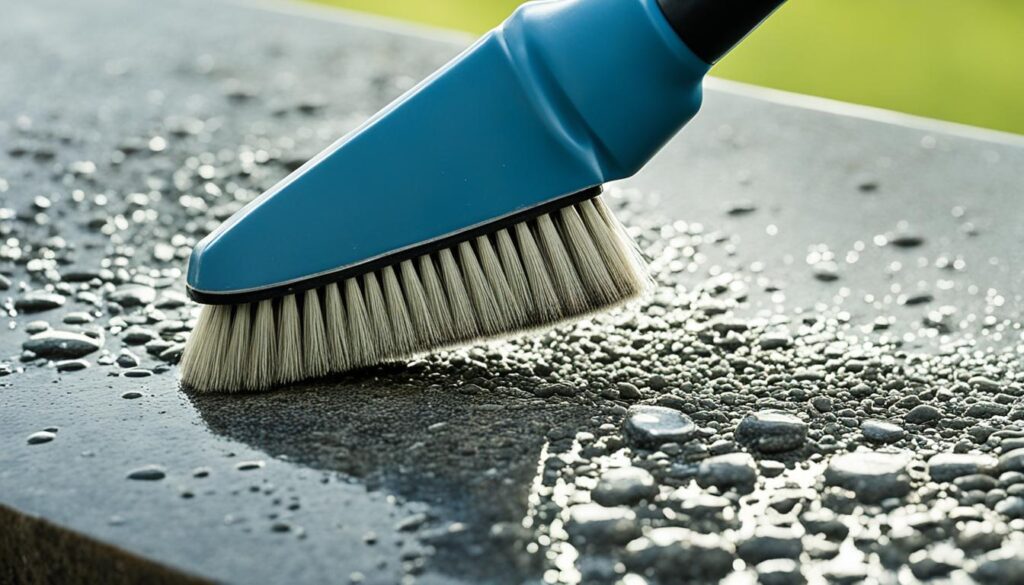
Using Poultice for Stain Removal
Natural stone poultices are great for stubborn stains. They’re mixed to match the stain type, like oil or organic. Poultices pull stains from deep within the stone, ensuring effective cleaning7.
Identifying and Treating Different Stains
Different stones react differently to stains. For example, marble and limestone don’t like acidic substances6. Stones like quartz are more acid-resistant but still need cautious care7. Knowing the right treatment is key:
- Oil-based stains: Use special poultices for grease removal.
- Organic stains: Treatable with hydrogen peroxide or ammonia7.
- Metal stains: Very hard to remove. Better call an expert7.
- Paint stains: You need the right cleaner to avoid damage7.
Using the correct methods to remove stains can make your stone last longer. It’s important to act fast and use the right techniques. This way, you can keep your stone looking good as new.
Essential Tips for Cleaning and Maintaining Natural Stone Surfaces
Taking care of natural stone surfaces boosts their beauty and lifespan. It’s important to clean and protect them properly. This includes using the right methods for granite, marble, limestone, and travertine. Follow these essential tips for cleaning and maintaining natural stone surfaces to keep them in top condition for many years.
Sealing Your Stone
Protect your stone with impregnating sealers. Sealers are a must for porous stones like limestone and marble to prevent damage8. They keep the stone looking natural and well-protected. For added color, try stone enhancer sealers.
Choosing the Right Cleaning Products
Picking the right cleaners is key to keeping the stone’s shine and durability. Stay away from strong chemicals and rough scrubbers8. Use cleaners that are mild and won’t scratch the surface. Specialists use advanced cleaning solutions for deep cleaning without harming the stone9.
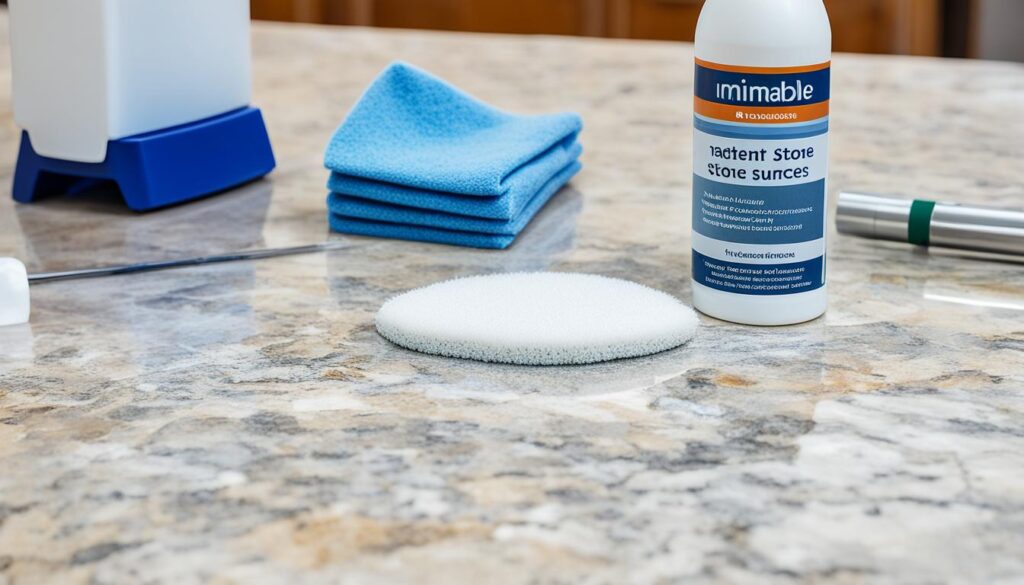
Preventing Damage
Handle your stone surfaces with care to maintain their quality. Dry up spills quickly to prevent staining and water damage8. Use coasters and mats to avoid scratches. Moving heavy items carefully can also protect the stone. Regular check-ups can catch and fix small problems early8.
In short, these essential tips for cleaning and maintaining natural stone surfaces help keep your stone beautiful and lasting longer. Seal properly, choose cleaners wisely, and handle with care to take good care of your natural stone.
Conclusion
Looking after natural stone might seem hard at first, but it gets easier once you know the type of stone. A good stone surface cleaning guide can teach you lots. It’s also key to learn about the different kinds of natural stones. Knowing how to both routinely and deeply clean stone is crucial.
To keep natural stone looking great, clean regularly with a pH-balanced cleaner10. If something spills, wipe it up right away to stop stains10. Always use coasters and trivets to avoid marks and heat damage10. It’s also vital to seal the stone properly to shield it from stains10. You might need to apply sealant again if water starts to soak in.
Don’t forget to dust and sweep stone floors to stop scratches10. With these steps, caring for stone is straightforward. For stones that are already damaged, professional restoration can make them look new. This way, your natural stone will always be beautiful.
FAQ
How often should natural stone surfaces be cleaned?
What types of cleaning products should be avoided on natural stone?
How do I identify whether my stone is calcareous or siliceous?
What’s the best way to clean natural stone countertops daily?
How can I remove stains from my natural stone surfaces?
Should natural stone surfaces be sealed?
What are the geological classifications of natural stone?
What routine care is necessary to maintain natural stone floors?
What are the most common types of natural stones used in homes?
How can I prevent damage to my natural stone surfaces?
Source Links
- 5 Essential Care Tips for Maintaining Your Natural Stone Countertops
- The Ultimate Guide to Caring for Your Natural Stone Surfaces
- Apex Stone » How to Clean Your Natural Stone
- Maintaining the Majesty of Natural Stone: A Comprehensive Guide to Care and Cleaning – CASTLEKING Blogs
- 10 Things You Should Know About Maintaining Your Natural Stone Countertops
- Natural Stone Tile Step-by-Step Care & Maintenance
- Learn About Cleaning Products for Natural Stone
- Maintaining Stone Surfaces 101: Cleaning and Protecting Natural Stone
- Simple Tips for Safely Cleaning Natural Stone Surfaces | COIT
- Essential Do’s and Don’ts for Natural Stone Care | Stone and Surface Specialists

